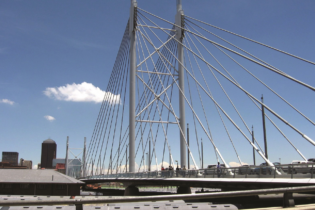At the current rate of electrification, it will take South Africa another 20 years before it achieves universal access to basic electricity for all its citizens.
The government initially set a target in 2004 to achieve universal access to electricity by this year. However, outstanding electrification in predominantly rural areas with mountainous terrain and scattered settlement patterns are proving more challenging than expected. The goal has been shifted to 2020, but Vicky Basson, CEO of solar installation company KwaZulu Electrical Services (KES), said that, at the current rate of electrification of 150 000 to 200 000 houses a year, it will take at least another 20 years to achieve this as an additional 3.4million households still need to be electrified. In KwaZulu-Natal and the Eastern Cape, where KES instals and operates solar home systems, there are some areas where between 75% and 100% of people are still without access to safe sources of electricity. Basson said more mobile solutions such as solar systems are needed to electrify deep rural areas, as trying to electrify the entire country from the grid will set back the target of universal access by at least another seven years, on top of current delays. Basson said institutional delays and complexities are slowing down the electrification process in South Africa. “We currently have the resources and funding, sourced from the German development bank KWF, to roll out 23000 of these systems as we speak. However, we are still waiting for local municipalities, Eskom and the DOE [Department of Energy] to identify areas where the systems should be installed,” said Basson. Basson and her team of about 100 workers have been taking on rough and remote terrains to instal solar systems for more than 20 years, “before it was even fashionable”, she said. The systems are compact and provide households with about four hours of electricity a day at a rental of R89 a month, depending on the subsidies from local municipalities.The project has also been subsidised by the DOE. KES is 50% owned by the French utility company EDF and has a local partner in Calulo Investments, which owns a stake in Total South Africa.
Calulo CEO Gabby Sequeira said there is a lot of potential to turn the model more commercial and start rolling out larger volumes. “There are also other spin-offs to get involved in such as the manufacturing of these systems as well as the services and logistics that go hand in hand with projects such as these.” Basson said shareholders have not received dividends from the project since it kicked off in 2001 as a result of the complexities of running a business that has a strong social aspect. She said collecting rent for the systems is extremely difficult, for various reasons including affordability (KES is not allowed to do any credit checks before installing the systems), the remoteness of certain areas and a culture of not paying in certain areas where the systems are installed. The company is averaging a payment rate of between 50% and 85%. Basson’s team has also been hijacked and robbed after collecting rents in certain communities. Basson said a stable “free basic electricity” policy and a central planning agency are essential to ensuring the sustainability and continuation of rural electrification projects. KES is currently renegotiating its contract with the DOE, which expires next month. Source: Sunday Times





